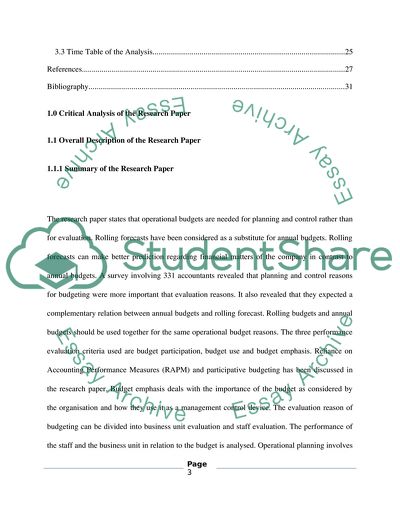Cite this document
(Sivabalan Et Al an Exploratory Study of Operational Reasons to Budget Research Paper, n.d.)
Sivabalan Et Al an Exploratory Study of Operational Reasons to Budget Research Paper. Retrieved from https://studentshare.org/macro-microeconomics/1747532-sivabalan-et-al-2009-an-exploratory-study-of-operational-reasons-to-budget
Sivabalan Et Al an Exploratory Study of Operational Reasons to Budget Research Paper. Retrieved from https://studentshare.org/macro-microeconomics/1747532-sivabalan-et-al-2009-an-exploratory-study-of-operational-reasons-to-budget
(Sivabalan Et Al an Exploratory Study of Operational Reasons to Budget Research Paper)
Sivabalan Et Al an Exploratory Study of Operational Reasons to Budget Research Paper. https://studentshare.org/macro-microeconomics/1747532-sivabalan-et-al-2009-an-exploratory-study-of-operational-reasons-to-budget.
Sivabalan Et Al an Exploratory Study of Operational Reasons to Budget Research Paper. https://studentshare.org/macro-microeconomics/1747532-sivabalan-et-al-2009-an-exploratory-study-of-operational-reasons-to-budget.
“Sivabalan Et Al an Exploratory Study of Operational Reasons to Budget Research Paper”, n.d. https://studentshare.org/macro-microeconomics/1747532-sivabalan-et-al-2009-an-exploratory-study-of-operational-reasons-to-budget.


